The Battle of Crete as a Pyrrhic Victory of the German Airborne
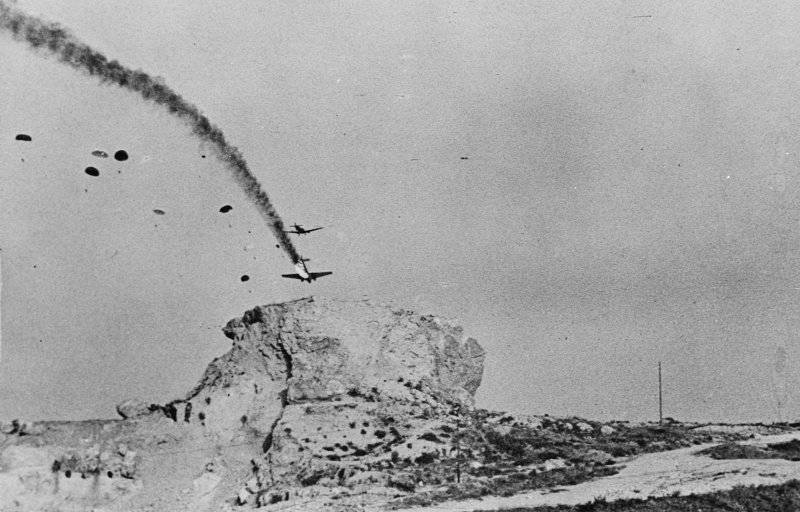
What are the reasons for such caution of the Germans? For example, their tank on the contrary, units and formations rushed forward only, not paying attention to their open flanks and lagging rear areas, in fact, German tankers replaced the Airborne Forces, as they acted decisively, impudently, assertively and initiatively, and the German Airborne units on the battlefield modestly followed them as ordinary motorized infantry.
The reason for such “modesty” of the German Airborne Forces, it turns out, was the personal order of the Führer, which prohibited the use of German airborne troops in special large-scale amphibious operations, this order was based on the operation to capture Fr. Crete, conducted by the German Air Force and Airborne in May 1941.
Why did the Germans need to seize this island in the eastern Mediterranean, and literally on the eve of the beginning of a big and serious war against the Soviet Union?
Many researchers believe that the Germans seriously feared that, using Crete as a base and a kind of unsinkable aircraft carrier, the Allies would begin bombing the Romanian oil fields, which were of great strategic importance to Germany, because without Romanian oil it was almost impossible to wage war against the USSR, so that the seizure of Crete was the key to the successful non-stop advancement of German tanks on the future Eastern Front.
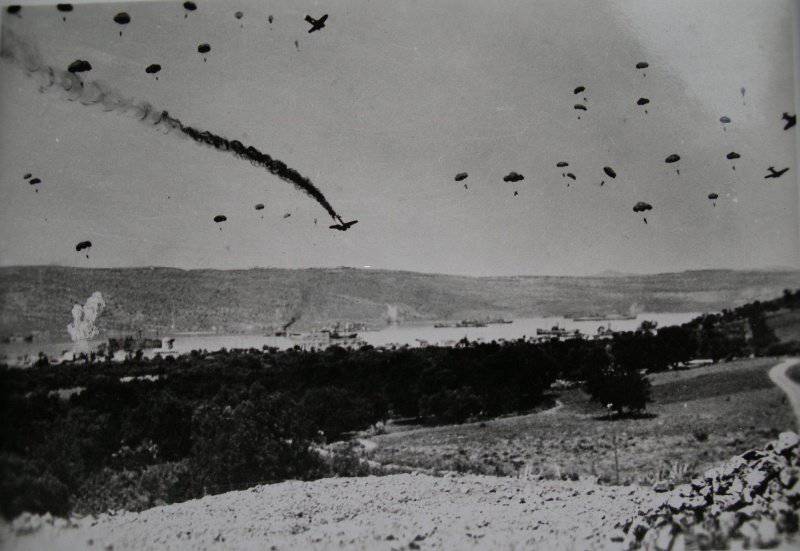
From various data it is known that by the beginning of the operation, the garrison of Crete numbered about 40 thousand Greek and British soldiers, the figure seems at first glance impressive, but the Greek troops had only 14 thousand soldiers in combat positions and they were practically without heavy weapons and had an extremely limited amount of ammunition. Thus, it was not easy for this grouping of the Allied forces to confront not only German paratroopers, the real German military elite, but even ordinary Wehrmacht infantry.
The British were well aware that poorly armed Greek troops could not defend for a long time and therefore the main forces that formed the basis of Crete’s anti-amphibious defense were mainly their best-trained personnel infantry regiments of Leicester, Argyle and Sutherland, which even light tanks had in service. The lack of transport was also a weakness in the defense of the island, so it was impossible to quickly transfer troops from one threatened direction to another, and the defenders also did not have enough artillery and ammunition for them. On the armament of air defense, in order to cover at least the most important objects, anti-aircraft guns were no more than half the required amount.
Apparently, the British command was counting mainly on its naval forces, since their warships almost completely controlled all the coastal waters of Crete. All this, as it seemed to them, made the island practically inaccessible for the traditional at that time naval assault, but the Germans struck where they were least expected - from the air.
The Germans created a special airborne grouping to invade Crete, which included: 11th aviation the corps, which was involved to directly land on the island, and the 8th air corps, which was supposed to cover all the operations of the landing on the ground. German aviation corps totaled 430 bombers and 180 fighters, more than 500 transport aircraft and 80 gliders. The Germans had complete air supremacy. The command of the entire operation was carried out by the Goering-Luftwaffe department, the German Airborne Forces at that time were part of the Air Force, as well as the air defense as they said, everything that flew was subordinated to the Hog-Goering.
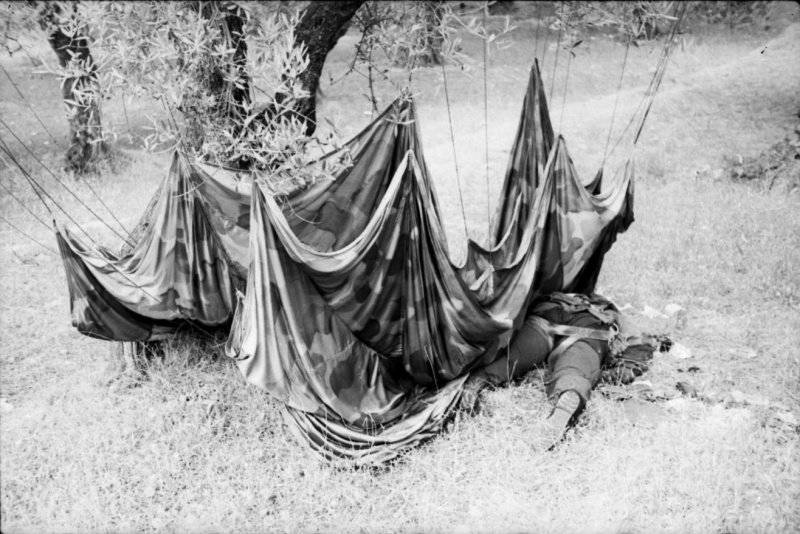
To capture Crete, the German command allocated the 7 th parachute and 5 th mountain rifle divisions. In addition to these main parts, part of the landing also included part of the gain. The Germans planned to parachute the parachute division with parachutes, and the mountain rifle division - with gliders and transport aircraft.
In total, about the landing force, including the parts that were supposed to be delivered by sea, included about 23 000 people. Despite the overwhelming air superiority, the assault of Crete was still a very risky and adventurous event, as the Luftwaffe intended to seize the island, located almost 100 miles from mainland Greece, virtually without naval forces, that is, using only one aircraft and paratroopers. It turned out that the number of invading forces was almost half as much as the defenders of the island. The Germans were in a hurry and, as subsequent events showed, this rush in preparation for such a serious operation almost led their best troops to a real tragedy and complete collapse.
And so the day "D" came, the operation to capture Fr. Crete called "Mercury" began exactly in 8.00 20 May 1941 of the year. Hundreds of German combat aircraft filled the sky over the island, attack aircraft hit exactly the previously identified targets, literally during the first minutes of attack and bombing raids, most of the positions of the Greeks and British were destroyed, and many anti-aircraft calculations were destroyed or for a short time neutralized, that is, simply panic fled.
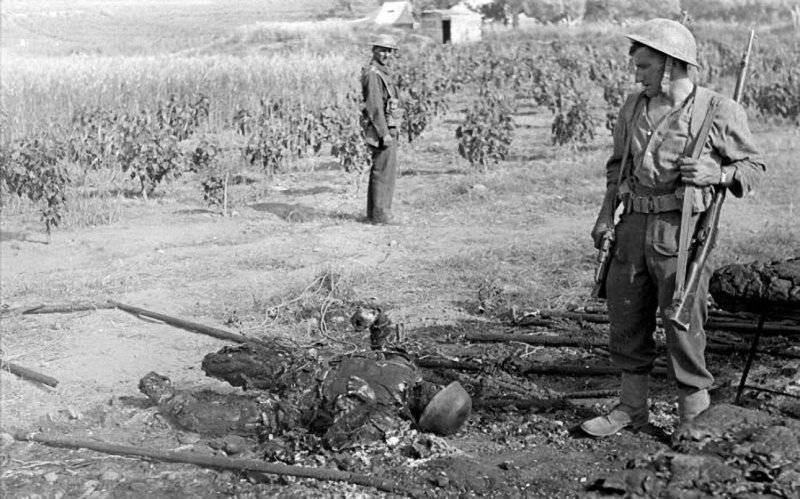
The German aces acted clearly according to the plan of the operation, initially most of the enemy’s air defense weapons were neutralized, then the main roads of the island, ports and many other objects defended were still attacked when they were shocked and confused when hundreds of them appeared right over their heads German transport workers Yu-52, and thousands of German paratroopers fell down like peas, then dozens of gliders appeared in the sky with mountain arrows on board. The spectacle was really impressive.
As a result, the total number of troops transported by the Germans by air was almost 23 500 people, in addition, the aircraft were delivered 353 guns, 771 motorcycle (the main vehicle of the German paratroopers), 5358 amphibious containers with weapons and gear and 1090 tons of various goods.
It seemed that everything started well and powerfully for the Germans, it seemed that it was almost impossible to stop such power, but it only seemed, then everything went clearly against the plans developed in the cozy Berlin headquarters.
Many of us have seen how modern airborne troops are parachuted, a paratrooper with him has not only personal small arms and grenade launchers, but also a stock of ammunition, food, etc., that is, a modern paratrooper can land and free from parachute lines to engage in combat. and effectively destroy not only enemy infantry, but also many armored targets.
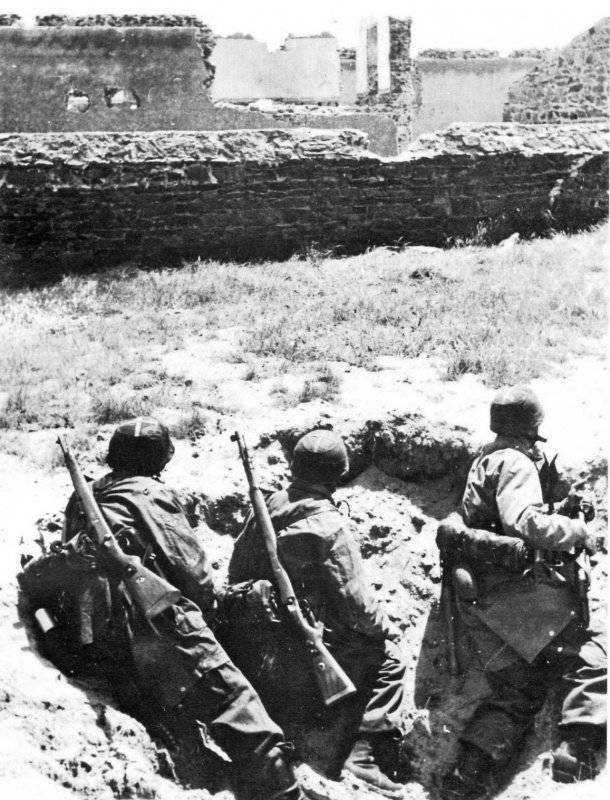
In the German Airborne in 1941g. when landing on Crete, the main drawback was that the parachutists during the landing had only knives and pistols with them. The main weapons and equipment were dumped separately in special containers. This was due, primarily, to flaws in the design of parachutes and fears that the lines could catch on protruding items of equipment.
Such tactics would be fully justified if they were dropped in deserted areas, but on Crete the landing took place almost at the enemy’s position. As a result, after landing, German paratroopers died in dozens, or even hundreds, as they faced the enemy with virtually unarmed, the Greeks and the British simply shot them with impunity, preventing them from reaching the containers with personal weapons.
As a result, the first wave of the landing of the German troops from the 7PD suffered major, mostly unjustified losses. But the British anti-aircraft artillery finally came to its senses and opened heavy barrage against German transport workers and paratroopers. Sometimes the surroundings were watched by scary pictures - this was when the wounded German planes broke apart right in the air, the parachutists poured out of them like potatoes from a bag and died, unable to open the parachute using an exhaust ring. Since the construction of the then German parachute did not allow to change the flight path in any way, so in the parachute case, as Crete showed, the Germans were clearly lagging behind, many losses among the paratroopers could have been avoided, having more advanced landing equipment.
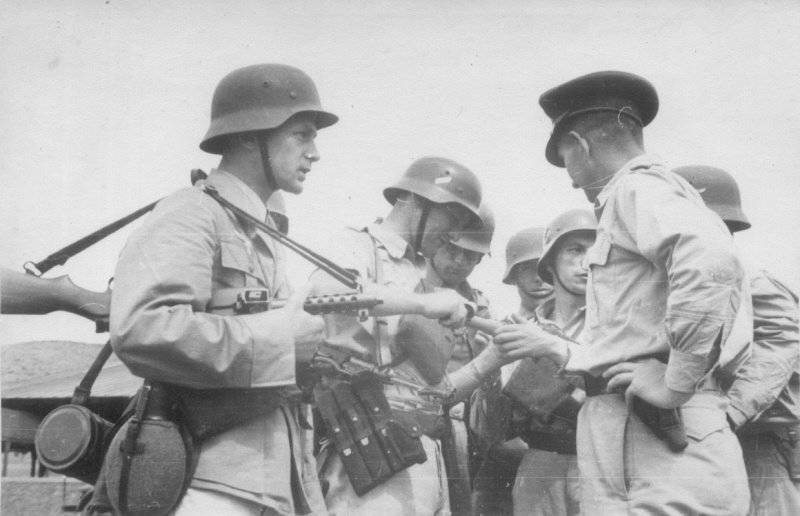
By the evening of the first day, after many hours of focal fighting, most of the Germans' planned plan failed. Parachutist attacks in many directions were repulsed. German troops landed on gliders in the area of Kan'i had to fight hard, many gliders crashed together with people aboard them. An attempt to land a naval assault force and that failed, all the transports on which the Italians, the German allies tried to transfer the landing forces to the island were sunk or driven away by British warships. The entire island was littered with wreckage of gliders abandoned by German parachutes, containers and a multitude of corpses, mostly from the German military elite.
But the Germans managed to cling to the island through inhuman efforts, and the British realized that this enemy would simply not let them finish it off completely, that the struggle for Crete was still ahead.
The commander and chief creator of the German Airborne Forces, General Student realized the real threat of a complete failure of the operation, however, despite pressure from the main command, the general resolutely rejected the proposal to stop the invasion of Crete, in this case you would have to leave to the real death, and simply leave to the mercy several thousand selected German assault troops, at the cost of tremendous effort and loss of bridgeheads and even entrenched around some English airfields.
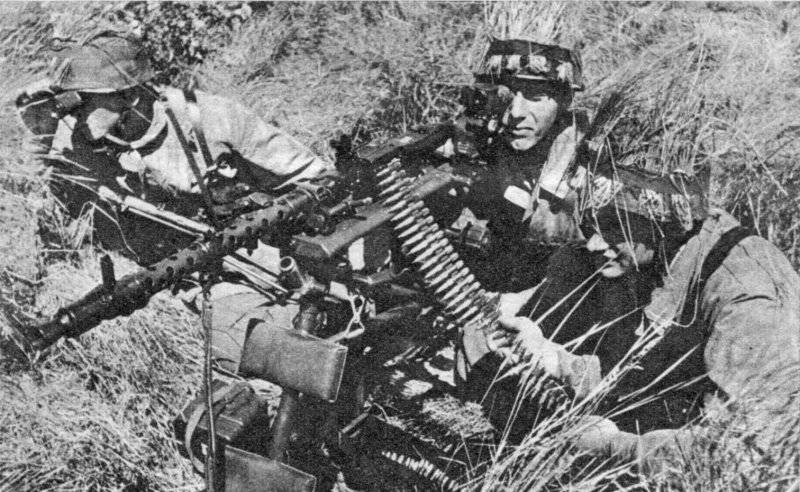
After a brief meeting, due to the absence of large reserves from the parachute units, since the entire 7 PD was in combat on the island, he decided to send the third echelon of assault forces as part of mountain riflemen to Crete. The order was given, regardless of the real state of things, since by that time there was not a single airfield completely under their control in the hands of the Germans, so the first wave aircraft had to land on a small mountain airfield, which was actually in the hands of the enemy.
And during the 22 in May, the German transport aircraft, despite the enemy’s dense anti-aircraft fire, managed to deliver two infantry battalions from the 5-th mining and infantry division, engineering battalion and parachute artillery battery to one of the mountain airfields called Maleme. The Germans had to clear the landing strip of burning and padded aircraft with the help of captured British tanks. According to eyewitnesses of those events, during the landing, such catastrophic pictures worthy of modern Hollywood blockbusters were not rarely observed, this is when a transport worker loaded all the way with mountain shooters during landing encountered another U-52 trying to take off, an explosion was heard, a flame was burning alive right before the eyes of those who were lucky, who had managed to disembark before them, the field of the airfield of Maleme, after the end of hostilities in Crete, became a real cemetery of German transport aviation.
The British, realizing that Maleme was the key to victory for the Germans and, in general, to master Crete, attacked this airfield all day long without interruption, but the Germans stood to death, they had nowhere to retreat, and they withstood. Soon all the attacks of the British were repulsed, and they were forced to retreat.
Finally, May 25, on the sixth day of the battle, was a turning point in the battle in favor of the Germans. General Student flew from Athens in Maleme with his headquarters, where he personally led his troops on the spot.
And soon, on May 27, the British realized that they had lost, their command issued an order to begin evacuation to Egypt, and in the evening on May 28, evacuation of exhausted and demoralized British troops to Egypt began. On the same day, May 28 from the sea successfully landed the main forces of the naval assault detachment of Italian troops consisting of almost 6 thousand people, which finally consolidated the success of the German paratroopers.
Victory to the Germans went to a very expensive price; they achieved success in the battles for Crete primarily due to the extensive personal training of German paratroopers and mountain shooters, their ability to fight in any terrain conditions and in any situation.
Yes, the German command was able to bring Operation Mercury to its logical conclusion, Crete was conquered as a result, but the victory turned out to be a real Pyrrhic for two weeks of fighting, their airborne units lost only about 4 thousands of people, almost 3400 the man was injured. The losses of military transport aviation are also catastrophic; of the 500 military transport aircraft that took part in the operation, only 185 units remained in the ranks, after Crete the Germans remained practically without their transport aircraft.
After the end of Operation Mercury, General Student was summoned to the Führer, Hitler found out about the losses, was furious, and from the vast office of the Reich Chancellery there were shouts and reproaches addressed to the Student, as a result, Hitler prohibited to continue to conduct large-scale landing operations with with the participation of the Airborne Forces, it was possible that the Germans were right to do so, since in the future the experience of the Second World War in general showed that large-scale operations of the airborne troops were too costly and risky activities, such as Airborne ation conducted by the Red Army in 1943g. on the Dnieper and our allies in 1944g. in Holland, which did not lead to great success, but the losses in people and technology were quite significant.
Information